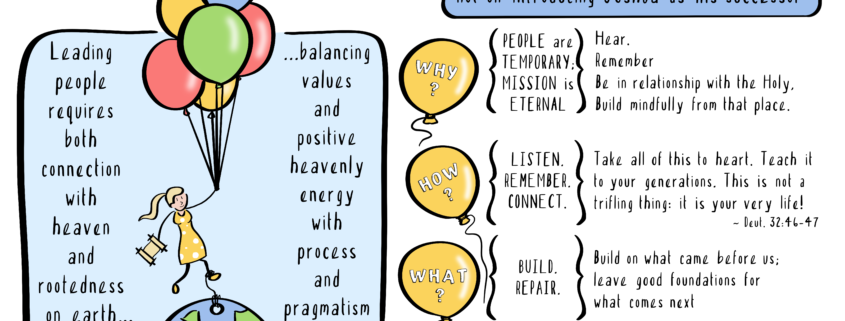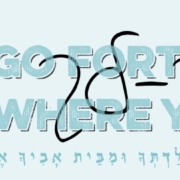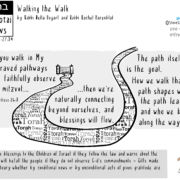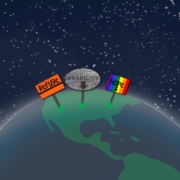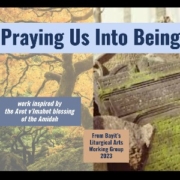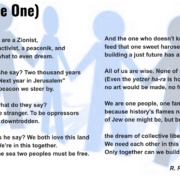Mission Statement: Listen. Remember. Connect. Build.
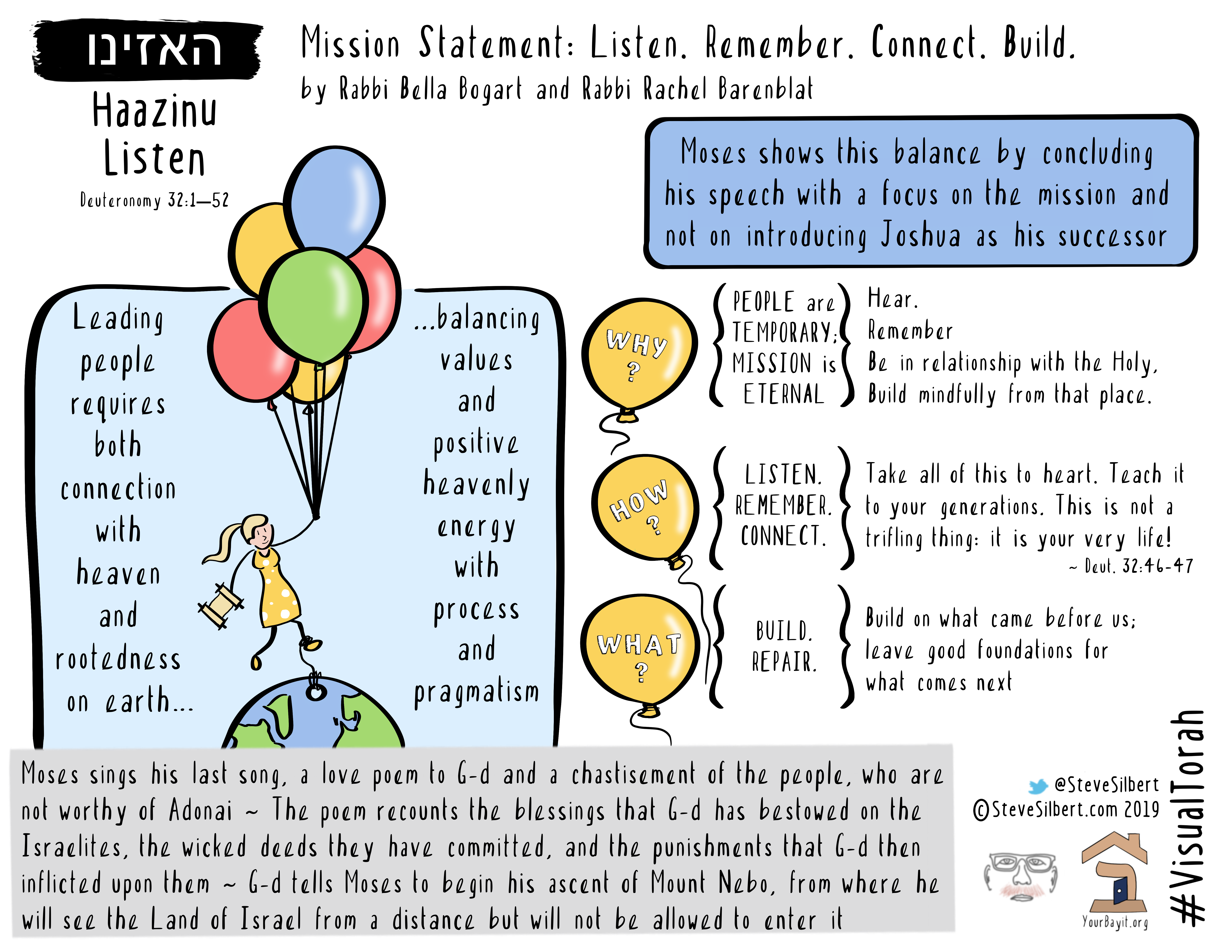
Part of a yearlong Torah series on building and builders in Jewish spiritual life.
In Ha’azinu, Moses gives his final oration. At the beginning of his story he called himself a person of uncircumcised lips or impeded speech, (Ex. 6:30) but here he’s eloquent, pouring forth an impassioned mission statement for the children of Israel. Ever since the burning bush, Moses has been a figure of transcendence. He speaks face-to-face with God, he goes up to the mountaintop… In this final speech, his transcendence feels even more palpable, maybe because he knows he’s about to die. And he begins (Deut: 32:1) by connecting up to heaven.
But leading the people has always required both connection with heaven, and rootedness on earth. Which is maybe why Moses has always had a partner. When Moses said he couldn’t go to Pharaoh because he can’t speak to people, God promised that Aaron would speak for him. And when Moses was too fiery, Aaron spoke to the people safely. Aaron was his connector, keeping him grounded. This time, it’s Joshua who is standing by his side. (Deut. 32:44) Joshua is his new connector, his new “grounding,” balancing Moses’ heavenly energy with some earth.
Given that, it’s interesting that Moses doesn’t conclude his speech with an introduction of Joshua as the people’s new leader. That would have put the people’s focus on the person at the helm — first Moses, who’s in the process of stepping down; then Joshua, who’s in the process of stepping up — rather than on the message that Moses wants to convey. Moses wants to give over a mission statement for b’nei Yisrael (the children of Israel; the community that together wrestles with the Holy; our spiritual ancestors in Torah “back then;” all of us listening today.)
Moses says:
“Take all of this to heart. Teach it to your generations. This is not a trifling thing: it is your very life!” (Deut. 32:46–47)
Moses knows that his time is over. And Joshua’s time too will be temporary. Every person who serves as a leader is necessarily temporary. In this final speech, he aims to teach the people that this isn’t about us, the leaders who are privileged to serve the community. It’s not about me or him (or her or them!) or whoever comes after. This is about our core mission as human beings. This is about who we are and what we’re here for. Our mission as b’nei Yisrael is to hear, to remember, to be in relationship with the Holy, and to build mindfully from that place.
Each of us is part of the chain of generations, the chain of tradition and transmission from our ancestors to our descendants (whether literal or metaphorical). In our place and time, each of us has building work to do: building on what came before us, and leaving good foundations for what will come next. But none of us is permanent. What’s permanent, says Moses in this week’s Torah portion, is God; heaven; earth; the whole of which each of us is a part. What’s permanent is the “Us”-ness that will continue after each of us is gone, and the mission we take on together.
Torah tells us that “God spoke to Moses in his bones on that day.” (Deut. 32:48) That verse is usually translated “on that very day,” but the use of the word עצם is striking. It can connote our bones, our essence, who we most truly are. Moses feels in his very bones that he is done. He feels in his bones that it’s time for a transition, and he consciously transfers leadership to Joshua — while making sure to focus not on them as individuals (no matter how extraordinary), but instead to focus on mission. Our mission is listening. Remembering. Relationship. Building.
May we feel that mission in our very bones… and may that somatic awareness inspire us to listen, to remember, to connect with each other and with God, and from there, to build.

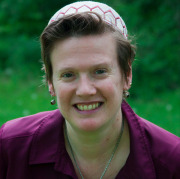

By Rabbi Bella Bogart and Rabbi Rachel Barenblat. Sketchnote by Steve Silbert.

